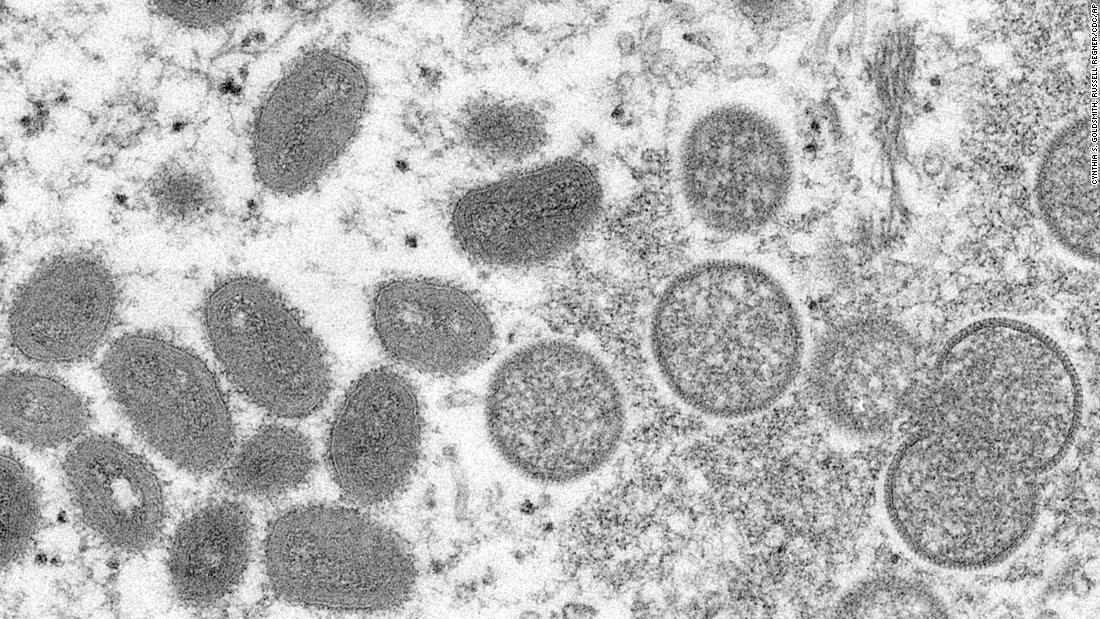
There is one confirmed case of monkeypox and four suspected cases in the United States, the CDC said Monday.
The confirmed case is in a man in Massachusetts, and the four cases of orthopox are in men in New York, Florida and Utah. Orthopox refers to pox viruses in general.
“It is likely that there are going to be additional cases reported in the United States,” said Dr. Jennifer McQuiston, a veterinarian and deputy director of the CDC’s Division of High Consequence Pathogens and Pathology.
Brooks said the CDC decided to hold a news conference about the outbreak now because LGBTQ Pride month usually kicks off around the Memorial Day weekend, and officials wanted to make sure the community was aware of the situation. He also urged doctors to be on the lookout for the disease, because it can look like other types of STDs.
“In some cases, during the early stages of illness, the rash has been mostly in the genital and perianal area,” Brooks said. “In some cases, it has produced anal or genital lesions that look like other diseases like herpes or chickenpox or syphilis.
“What we’re trying to do by bringing attention to the fact that some of these cases have had a genital and perianal presentation is just to remind people that people may come in for an evaluation of what they think is an STD, but we’d like the provider to think ‘could it be monkeypox as well?’ if the circumstances fit the story,” Brooks added.
Monkeypox is not a sexually transmitted disease, but it can spread through intimate contact during sex when someone has an active rash.
It also can spread through large respiratory droplets, but because large droplets don’t travel far in the air, the contact has to be prolonged for this to happen.
“Anyone can spread monkeypox [from] contact with body fluid or monkeypox sores or respiratory droplets when close to someone,” Brooks said.
The risk to the general public from this outbreak is low, according to the CDC.
“I don’t think that there’s a great risk to the general community from monkeypox right now in the United States. I think that we need to pay close attention to the communities in which this might be circulating so that we can communicate effectively with them and help bring this outbreak under control,” McQuiston said.
Monkeypox doesn’t seem to be spreading so quickly that parties or events needed to be canceled to stop the spread.
“This is not Covid,” McQuiston said. “Respiratory spread is not the predominant worry. It is contact, and intimate contact, in the current outbreak setting and population. And that’s really what we want to emphasize.”
It’s also important that this outbreak not cause stigma toward the LGBTQ community, according to the Joint United Nations Programme on HIV/AIDS. It warned that some reporting and commentary on monkeypox has used language and imagery that reinforce stereotypes and exacerbate stigma.
The WHO also cautioned people not to use the disease as a way to negatively label any particular community.
“There’s a lot of stigma and discrimination that surrounds many diseases, and I think the key thing we need to look out for is, as WHO, to work with our partners in communities and elsewhere to make sure that the messaging is correct. So while we are seeing some cases among men who have sex with men, this is not a gay disease,” WHO adviser Andy Seale said Monday.
The US is in the process of responding to a request for the release of the Bavarian Nordic Jynneos monkeypox vaccine from the stockpile.
CNN’s Virginia Langmaid, Claudia Dominguez and Jacqueline Howard contributed to this report.

